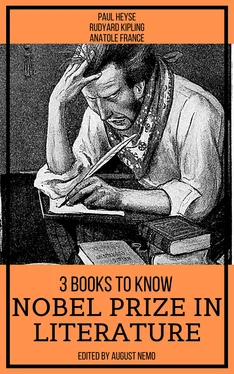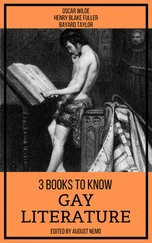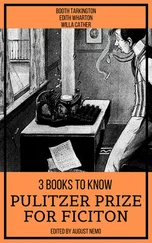"You are very much mistaken," she gravely interrupted. "I have already told you that I too know what it is to sit in the shadow and feel no ray of warmth from the sun that illumines the fairy castles of others. But it is for that very reason, that I do not wish to be reminded in books of what I have already had a sufficient experience of in my life, and found by no means amusing or poetical. And however it maybe with outward cares, their charms and pleasures; the inward poverty, the miserable, half developed, embittered, starved feelings, the oppression beneath which human souls drag out such a painful existence—will you assert that these also are fitting themes for the poet's art?"
He was just beginning to reply, with a sense of secret surprise at the gloomy, dismal feeling underlying her words, when the striped waistcoat appeared at the door of the dining room. The dwarf had evidently just brushed his tow colored wig, fastened his cravat tighter, and drawn on a pair of white cotton gloves, which only made his short hands more clumsy.
"Pardon me for not interrupting the regular routine of my day," said the beautiful girl, suddenly adopting a gayer tone. "That is my tyrant. Small as he is, and submissive as he pretends to be—if I'm not punctual at my meals, I lose his favor. The young man can vie in good sense and faithfulness with many grown persons, but his stomach is still a child's and must have its dues every two or three hours, or he gets very ill-natured. But I may venture to invite you to be my guest. The restaurant provides me with such an abundant supply of food, that even Jean sometimes gives up the task of attempting to eat the portion I leave. You have already dined? But you will at least give me your society; for my usual company, to which I will introduce you directly, is only a make-shift."
She preceded him into the little dining room, where the boy nimbly pushed a second chair up to the daintily spread table. But before the young girl sat down, she went to the bird cage and opened the gilded door. "There," said she, clapping her hands three times as if for a signal, "there they come flying out. Some of them understand the order of proceedings and will instruct the new comers—those shy ones at the back that will not venture out. You must not suppose I take pleasure in shutting up the poor things; I buy new ones almost every day, mere native birds, as you see, just to feed them here a little while, and then after they have given me their society at dinner, I let them fly away again. Many, to be sure, will not go; but I am not to blame for that. Whoever voluntarily resigns freedom for good food and care, must accept imprisonment cheerfully. Tu l'as voulu!"
He listened to her quietly as a part of the gay feathered flock darted out of the cage and fluttered around the table and corners of the room, while the others remained timidly within. The window stood wide open; some of the most insignificant in appearance, after hesitating a moment, whetting their beaks on the sill and trying their wings, soared out into the open air with loud chirps and twitterings. The remainder, among which a beautiful gold-finch was the most attractive, crowded about the side-board and covered dishes on the table, in eager expectation of the good things they were to receive.
"I don't object to being alone all day," said the young mistress, taking her seat and motioning Edwin, with a gesture of charming authoritativeness, to sit down in the opposite chair, "but it is horrible to eat alone. One never feels so inhuman, selfish, and hard hearted, as when one is putting one piece of food after another into one's mouth entirely by himself. I always begin to think of the hundreds of thousands who have nothing to eat, and the thought disgusts me with my favorite dishes, so that I can scarcely half satisfy my hunger. But now look at this unruly rabble. How they quarrel and scuffle over every little crumb, and the greatest eater there, the little magpie, grudges the black bird every mouthful. Will you be quiet, you ugly thing?"
She took a silver salt spoon and tapped the bird, that was giving itself such airs, gently on the back, but without making any special impression upon him, and then cut some little biscuits which had been served with the dessert, into pieces, strewed sugared almonds over them, and divided these dainties between half a dozen little plates, which she placed in a circle on the table. The greedy birds instantly assembled around their food; only a few timid ones that remained on the side board preferred to take the crumbs she threw them, while the boldest perched on the edge of the dish of fruit, and rioted undisturbed on the magnificent pears and peaches.
Meantime she herself began to eat, after vainly urging Edwin to do so, and finally insisted that he must at least try some of the sweet Spanish wine, of which she only sipped a little from a slender crystal glass to drink his health. She ate in the same manner, tiny morsels which she took from her plate with the silver fork, and while busily talking, partook a little more freely of four or five vegetables and one sweet dish, but scarcely touched the meats. Edwin jestingly asked if she were a vegetarian. She requested him to explain the word, which she did not understand. "That's an excellent system," she said with a thoughtful nod, "I'm really a born vegetarian, without knowing it until to-day, and have often been laughed at in consequence. See that partridge, how sadly it thrusts its roasted beak into its own larded breast! I cannot look at it without reproaching myself for the happy creature's early death. And I was not even personally acquainted with the poor thing. But I could never have the heart to eat the chickens my mother had fed herself. She called it affectation! Dear me, my appetite in those days was far too healthy to allow me to be sentimental at the expense of my stomach. Now I have little enough and believe I could live upon bread and fruits."
As she said all this with a mixture of innocent gayety and womanly consciousness, while her manner toward her guest was one of the most perfect ease—he became more and more doubtful what to think of this mysterious creature. He had had very little intercourse with ladies who had seemed particularly worthy of notice. Face to face with this problem, which even experienced connoisseurs of women had given up, all his psychological wisdom was of no avail. But some secret feeling, which would not be stifled, told him that whatever perverted, noxious, or dangerous things there might be in this girl's character or fate, the depths of her nature were pure and true, and even the open coquetry with which she had entered into the rôle of a fairy among her enchanted princes in the cage, had a tinge of innocent fancy, and suited her as well as the ribbons and spangles of the child, who in play decks itself to represent a princess.
"You have grown so quiet," she said, paring a peach and placing half of it on his plate, "that I see there is something about me of which you do not approve,—perhaps the frankness with which I treat you like an old acquaintance. Say so openly; true, I shall not be able to change my manner, but I don't wish to impose any constraint upon you."
"I am reflecting," said he, "upon the strange chance which has brought me to this place. Is it not really like a fairy tale, that I am here in your society, while you do not even know my name, and I nothing more of you than yours?"
She raised the silver fruit knife she held in her hand, and with a roguish, mysterious expression, pressed it to her laughing lips. "Let that pass," said she, "it has all come about by natural means, without any magic or sorcery. But for that very reason, it is better to enjoy it so long as it lasts, and not spoil it by reflections and investigations."
"Will it last?" he asked gravely.
Читать дальше












